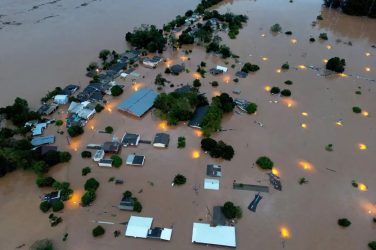 The Central Bank of Brazil (BC) announced Wednesday, August 20, a range of initiatives that are expected to spur the economy by freeing up more resources for bank loans. The amount to be freed totals over US$ 11 billion, starting on Monday.
The Central Bank of Brazil (BC) announced Wednesday, August 20, a range of initiatives that are expected to spur the economy by freeing up more resources for bank loans. The amount to be freed totals over US$ 11 billion, starting on Monday.
Resources will derive from decreasing reserve requirements by US$ 6.65 billion, and a US$ 4.434-billion reduction in the deposit that banks must keep with the Central Bank. This comes as an addition to the announcement made by BC of measures injecting approximately US$ 20 billion into the economy.
One of the measures allows banks to use up to 60% of the banks’ mandatory deposit with the Central Bank in new credit operations and the purchase of credit portfolios.
As part of BC’s measures, the Central Bank made the rules less strict for the minimum capital required due to credit risk, which is the amount that the banks’ shareholders must maintain as a reserve for each credit transaction. This initiative freed up around US$ 6.65 billion, with the potential generation of new credit operations of over US$ 62 billion, according to BC official Caio Ferreira.
Furthermore, BC has reset the estimated risk rate at 75% for all retail credit operations, regardless of their deadline. Ferreira pointed out that a few years ago this rate reached up to 300%. But he believes banks have been more careful granting credit, so there is no threat to the stability of the financial system.
Another action taken by the Central Bank was the redefinition of loans to civil servants deducted directly from their salaries as less risky, as they are not likely to lose their jobs. This dropped the estimated risk rate for federal civil servants from 75% to 50%.
BC has also announced a reduction in the percentage banks must keep as a reserve when they issue stand-by letters of credit ensuring payment in foreign trade operations and bidding processes. In bidding cases, for instance, the bank guarantees the payment of fines in case the company does not follow the contract.
In case of loans for vehicles, BC has stipulated that banks will have to carry out more operations of the sort in order to have the right to a 60% deduction in the mandatory collection. “In order for there to be gains, [banks] must do more than they used to,” said Daso Coimbra, head of BC’s Department for Bank Operations and Payments System.









